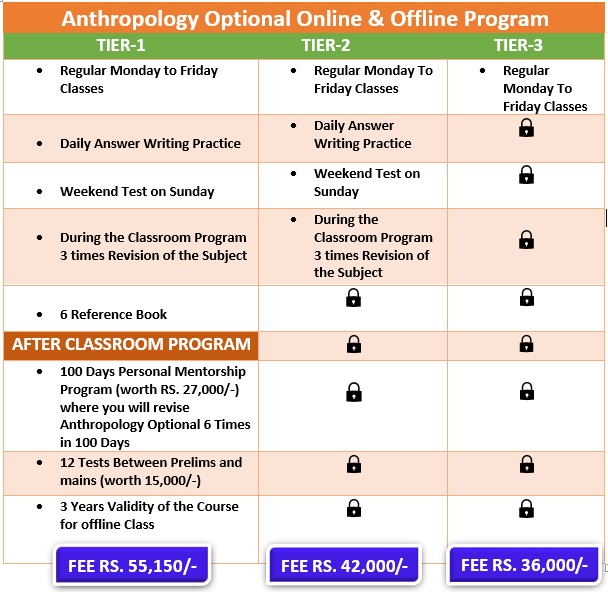
Average Marks in Anthropology Optional In UPSC
Anthropology as an optional subject in the UPSC Civil Services Examination has gained substantial traction over the years. Its relatively short syllabus, interdisciplinary nature, and scoring potential make it an attractive choice for many aspirants. However, to make an informed decision, understanding the average marks in Anthropology optional and the factors influencing them is crucial. This article provides a comprehensive analysis of the average marks in Anthropology optional, highlighting the importance of strategic preparation and the role of coaching institutes like Vijetha IAS Academy and experts such as Kishore sir.
The Appeal of Anthropology as an Optional Subject
Several factors contribute to the growing popularity of Anthropology among UPSC candidates:
1. Concise Syllabus
Compared to other optional subjects, Anthropology has a concise and well-defined syllabus. This makes it a manageable choice for candidates, especially those balancing their preparation with professional commitments.
2. Interdisciplinary Nature
Anthropology intersects with various disciplines such as sociology, biology, history, and archaeology. This interdisciplinary approach not only makes the subject interesting but also helps in the General Studies papers.
3. Scoring Potential
Anthropology is known for its scoring potential. With the right preparation strategy and guidance, candidates can achieve high marks in this subject, significantly boosting their overall score.
Average Marks in Anthropology Optional
Understanding the average marks in Anthropology optional is essential for setting realistic goals and benchmarks. Typically, the average scores range between 270-300 marks out of 500. However, with dedicated preparation and effective answer-writing skills, scores can surpass this range, sometimes even reaching up to 330-350 marks.
Factors Influencing Marks in Anthropology
Several factors influence the marks one can achieve in Anthropology optional:
1. Conceptual Clarity
Having a clear understanding of core concepts is fundamental. Candidates must be able to explain anthropological theories, methodologies, and case studies with precision.
2. Answer Writing Skills
Structured and well-articulated answers are crucial. This involves presenting answers logically, incorporating relevant examples, and using appropriate terminologies.
3. Use of Diagrams
Diagrams play a vital role in Anthropology. Well-drawn diagrams can enhance the quality of answers and make them more comprehensible and visually appealing.
4. Integration of Current Affairs
Relating anthropological concepts to current events and issues demonstrates a deeper understanding of the subject and its applicability.
The Role of Coaching Institutes
Coaching institutes are instrumental in guiding aspirants through the complexities of the UPSC examination. Vijetha IAS Academy is renowned for its specialized courses in Anthropology, offering comprehensive support to aspirants.
1. Expert Faculty
Institutes like Vijetha IAS Academy boast experienced faculty who provide in-depth knowledge and insights into the subject. Their expertise helps in simplifying complex topics and making them easily understandable.
2. Structured Curriculum
A well-structured curriculum ensures comprehensive coverage of the syllabus. This systematic approach helps in efficient preparation and reduces the chances of missing out on important topics.
3. Regular Assessments
Periodic tests and assessments are crucial in tracking progress. They help identify strengths and weaknesses, allowing candidates to focus on areas that need improvement.
4. Peer Learning
Interaction with fellow aspirants fosters a competitive environment and encourages knowledge sharing. Group discussions and peer reviews can provide new perspectives and enhance understanding.
Kishore Sir’s Anthropology: A Benchmark in Quality Education
Kishore sir is a prominent name in Anthropology coaching, known for his effective teaching methods and comprehensive study material. His approach to teaching emphasizes conceptual clarity and practical insights, making complex topics more accessible.
1. Focus on Concepts
Kishore sir emphasizes building a strong foundation in core concepts. His teaching methods ensure that students have a clear and thorough understanding of fundamental theories and principles.
2. Interactive Teaching
Interactive teaching methods encourage active participation and engagement. This approach helps in better retention of knowledge and makes learning more enjoyable.
3. Customized Feedback
Personalized feedback on answer writing is crucial for improvement. Kishore sir provides detailed feedback, helping students refine their answers and enhance their writing skills.
4. Current Affairs Integration
Regular updates on current affairs and their relevance to anthropological concepts add value to the preparation. This integration helps in writing answers that are not only theoretically sound but also practically relevant.
Strategy for Maximizing Marks in Anthropology Optional
To maximize marks in Anthropology optional, candidates should adopt a well-rounded strategy:
1. Understand the Syllabus
Begin with a thorough understanding of the syllabus. Break it down into smaller sections and create a detailed study plan covering all topics systematically.
2. Consistent Study Routine
Consistency is key. Allocate specific hours each day for Anthropology preparation and adhere to the schedule diligently.
3. Effective Note-Making
Make concise and comprehensive notes for each topic. Use diagrams and flowcharts to simplify complex information and make revisions easier.
4. Regular Revisions
Periodic revisions are essential to retain information. Schedule regular revision sessions to revisit and reinforce what you have learned.
5. Practice Answer Writing
Regular answer writing practice is crucial. Focus on structuring answers well, using appropriate terminologies, and incorporating relevant examples and diagrams.
6. Mock Tests
Participate in mock tests to simulate the exam environment. This helps in time management and identifying areas that need more attention.
The Impact of Effective Guidance
Effective guidance can significantly impact your preparation. Institutes like Vijetha IAS Academy and educators like Kishore sir provide the necessary support and direction, helping you navigate through the complexities of the subject.
Conclusion
Scoring well in Anthropology optional requires a blend of conceptual clarity, effective answer writing, and consistent practice. Understanding the average marks in Anthropology optional gives a realistic benchmark to aim for. Leveraging resources and guidance from reputed institutes like Vijetha IAS Academy and experts like Kishore sir can significantly enhance your preparation. With the right strategy and dedication, you can excel in this subject and boost your overall UPSC score.

